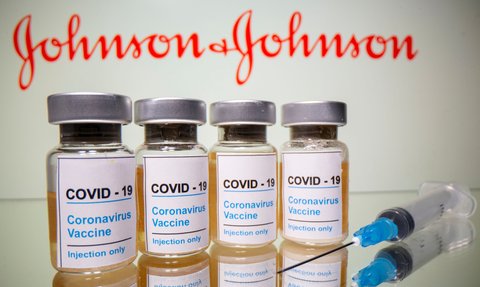In a trial that is still ongoing and has tracked some 44,000 patients in the U.S. and seven other countries over three continents, the vaccine so far has been 66 per cent effective overall at preventing moderate to severe illness, and much more protective — 85 per cent — against the most serious symptoms.
Dr. Matthew Oughton, an infectious disease specialist at Jewish General Hospital in Montreal, told CBC News the trial data „certainly looks promising for a single dose, which of course will certainly ease a lot of the logistics we’ve been dealing with so far with the current vaccines that have been granted approval.”
He said by examining mixed populations across continents, the J&J trial is not only „looking at differences in how different groups of people respond, that also means that they capture different viral variants, so they have a good sense of the real-world efficacy of this vaccine.”
Researchers tracked illnesses starting 28 days after vaccination — about the time when people getting a two-dose vaccine such as the Moderna and Pfizer-BioNTech products would have needed another shot.
While the effectiveness in trials is lower than what Moderna and Pfizer reported, the myriad supply issues resulting so far from dozens of countries demanding a scarce resource mean it could be a welcome addition in the fight against COVID-19 in certain cases.
Says Matthew Miller, an associate professor at the Institute for Infectious Disease Research at McMaster University, „less efficacious vaccines might be appropriate for lower-risk populations.”
Dr. Anthony Fauci, director of the U.S. National Institute of Allergy and Infectious Diseases, also was particularly encouraged by the findings with respect to patients with the most serious symptoms — in the vaccine group, no one who was vaccinated needed hospitalization or died after Day 28.
J&J said that within a week, it will file an application for emergency use in the U.S., and then abroad. The Canadian government signed an agreement with Johnson & Johnson for up to 38 million doses of their vaccine should Health Canada approve its use.




